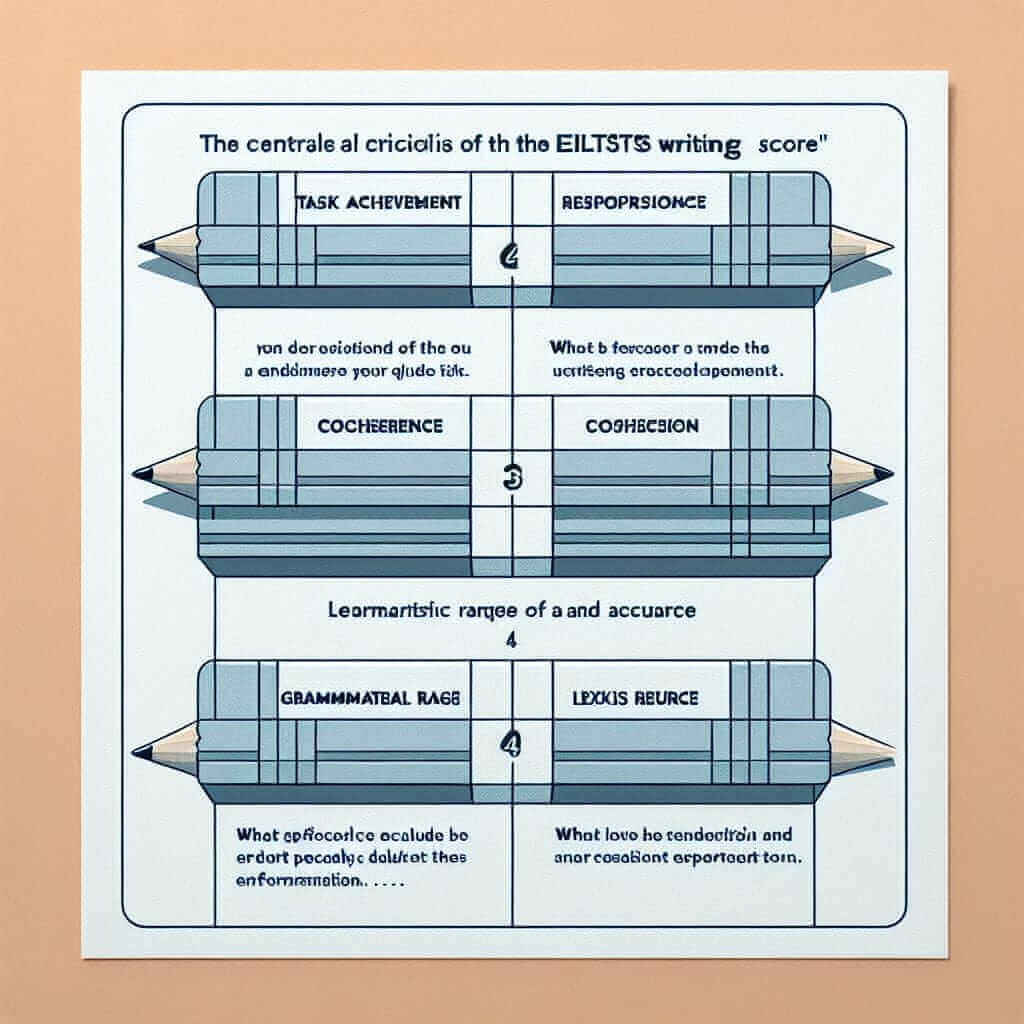Understanding how to analyze IELTS writing band scores is crucial for achieving your desired score in the IELTS exam. The writing module consists of two tasks and is evaluated based on four key criteria. This article will help you comprehend these criteria and offer practical tips on how to excel.
What is the IELTS Writing Band Score?
The IELTS Writing band score ranges from 0-9, with each score representing a different level of English writing ability. These scores are assessed based on four main criteria:
- Task Achievement/Response
- Coherence and Cohesion
- Lexical Resource
- Grammatical Range and Accuracy
Task Achievement/Response
Task Achievement (for Task 1) and Task Response (for Task 2) judge how well you complete the given task. This includes addressing all parts of the task, presenting a clear position, and supporting ideas with evidence.
For example, in Task 1 (a graph description), a student must describe the main trends, differences, or stages, and support these with data.
Example:
- Band 9: The student fully addresses all parts, providing a clear overview and supporting details.
- Band 6: The student addresses the task but may miss key information or lack clear support for their points.
Coherence and Cohesion
This criterion assesses the logical organization of your essay and the use of linking words (cohesive devices). It ensures your essay flows smoothly from one idea to another.
Example:
- Band 9: The essay is well-organized with clear, logical progression and effective use of cohesive devices.
- Band 6: The essay has a logical organization but may have some areas of unclear progression or misuse of cohesive devices.
Lexical Resource
Lexical Resource evaluates the range and accuracy of your vocabulary. It looks at how accurately you use a variety of words and your ability to paraphrase.
Example:
- Band 9: The student uses a wide range of vocabulary with natural, sophisticated control and very rare errors.
- Band 6: The vocabulary is sufficient but might include occasional mistakes and limited variety.
Grammatical Range and Accuracy
This criterion measures the range and accuracy of your grammatical structures, including sentence variety and error-free sentences.
Example:
- Band 9: The student uses a range of complex structures with high accuracy.
- Band 6: There is an adequate range of structures with some errors and frequent simple sentences.

Common Mistakes and How to Avoid Them
Task Achievement/Response Mistakes
- Incomplete answers: Ensure you address all parts of the task.
- Vague positions: Develop a clear and consistent stance, especially in Task 2.
Coherence and Cohesion Mistakes
- Poor organization: Plan your paragraphs logically.
- Overusing linking words: Use cohesive devices effectively but avoid overuse.
Lexical Resource Mistakes
- Repetition of words: Paraphrase to showcase a wider range of vocabulary.
- Misused words: Ensure you understand the precise meaning and context of advanced words before using them.
Grammatical Range and Accuracy Mistakes
- Frequent errors: Practice grammar exercises to minimize errors.
- Lack of complexity: Incorporate a mix of simple, compound, and complex sentences.
Practical Tips for Improving Your IELTS Writing Band Score
Practice Regularly
- Write essays on different topics and get them reviewed by a teacher or online platforms.
Study Model Essays
- Analyze high-scoring essays to understand what makes them effective.
Use a Variety of Resources
- Utilize textbooks, online courses, and grammar guides to expand your knowledge.
Take Practice Tests
- Simulate test conditions to build your confidence and time management skills.
Seek Feedback
- Constructive feedback from experienced instructors can pinpoint your weaknesses and guide your improvement.
Conclusion
Understanding how to analyze IELTS writing band scores is essential for any aspirant aiming for a high score. Focus on mastering the four key criteria: Task Achievement/Response, Coherence and Cohesion, Lexical Resource, and Grammatical Range and Accuracy. By avoiding common mistakes and adopting structured practice routines, you can significantly improve your writing skills.
We hope this guide helps you on your journey to mastering the IELTS writing section. If you found this article helpful, feel free to leave a comment or explore more content on our website for additional tips and strategies.